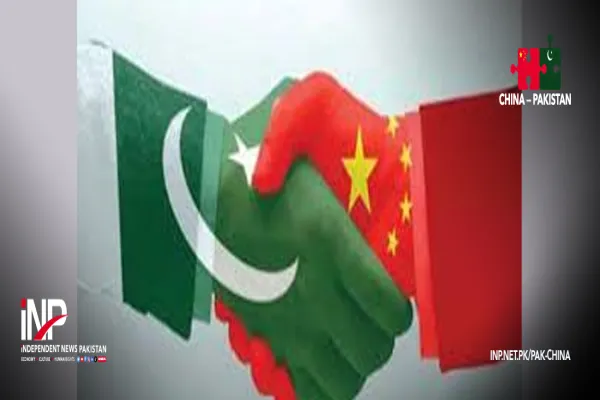i NEWS PAK-CHINA
Surprisingly, a US Congressional Committee 's recent recommendation to include India in the “NATO Plus” alliance raises questions about global defense equilibrium. The timing of this proposal, just ahead of Indian Prime Minister Narendra Modi’s visit to Washington, has further added a thick layer of curiosity over these questions, according to a report published by Gwadar Pro on Friday. “NATO Plus” is a US-led, defense-oriented group consisting of all NATO members and five other nations: Australia, Japan, Israel, New Zealand, and South Korea. The House Select Committee on the Strategic Competition between the United States and the Communist Party of China, led by Chairman Mike Gallagher and Ranking Member Raja Krishnamoorthi, overwhelmingly adopted a policy proposal to enhance Taiwan’s deterrence, including through strengthening NATO Plus to include India.
This expansionary move to incorporate India into NATO Plus, which is ostensibly aimed at creating deterrence against China, appears to be an attempt to further consolidate US hegemony and encircle potential rivals. While touted as a mechanism to ensure Taiwan’s territorial integrity in the face of direct threats, the real motive behind such a proposition remains extremely questionable. It seems to be a calculated effort to strengthen the military influence of the United States and its allies, thereby exerting control over regions of strategic importance. This move perpetuates an agenda of dominance rather than fostering genuine global defense cooperation. Simultaneously, the purported plan to establish a NATO liaison office in Tokyo is nearing finalization, underscoring a concerning wave of NATO's expansion into Asia, instigated by the bellicose factions within the American establishment.
This move signals an escalation of America's interventionist agenda, driven by a desire to exert control and influence in the region. The hawkish elements in Washington, driven by their own strategic interests, seem intent on spreading the reach of NATO beyond its original scope. Such actions fuel anxieties among nations, heightening the specter of geopolitical tensions and potentially disrupting delicate regional dynamics. This expansionist inclination risks further exacerbating global rivalries and undermining efforts for peaceful coexistence and cooperation in Asia. The timing of this proposal regarding inclusion of India into NATO Plus, ahead of Indian Prime Minister Narendra Modi's forthcoming state visit to the US, raises eyebrows. Is it mere posturing or a deliberate pressure tactic employed by Washington to exert control?
The truth likely lies in the fact that India's growing assertiveness – in addition to China’s dominance - in leading the Global South at international forums has become a huge irritation in the field of diplomacy for the American policy makers. The move to involve India in matters related to the “deterrence of Taiwan,” an entity that India doesn’t even formally recognize, seems disconnected and suspicious. It suggests that behind the scenes, ulterior motives are at play, driven by Washington's desire to co-opt India into its broader strategic agenda in the Indo-Pacific region. This development casts doubt on India's intent to steer a “neutral” foreign policy and raises concerns about its role in a potentially escalatory confrontation between the United States and China – and Russia as well. The notion of NATO’s foray into the Indo-Pacific region is highly contentious and raises valid concerns about the alliance's expanding reach.
NATO, originally established with a North Atlantic focus, risks provoking instability by involving itself in far-flung regions that are outside its traditional mandate. Countries within NATO advocating for a more nuanced and cooperative approach to China are likely to view this move as a slight, as the alliance sets its sights on Asia as a potential sphere of influence. It is undeniable that the United States spearheads the push for NATO's presence in Asia, leaving little room for doubt about its motivations and intentions. By advocating for NATO's involvement in a region already fraught with complex power dynamics, the United States risks exacerbating existing tensions and further entangling itself in potential conflicts. Rather than fostering stability, such actions can contribute to the creation of powder kegs that threaten global security.
NATO should tread carefully and reevaluate its role, remaining mindful of the potential repercussions of overreach and avoiding actions that could heighten tensions and undermine regional stability. The good thing is that New Delhi has given a cold-shoulder to this proposal which threatens to disrupt its long-standing ties with Moscow. It is apparent that the United States is actively pursuing this outcome, aiming to sever Russia's connections while exploiting India's defense deals and leveraging its strategic position in the Indo-Pacific region. By venturing beyond its traditional North Atlantic focus, NATO risks unsettling regional stability and exacerbating existing tensions. The United States' leading role in advocating for NATO's presence in Asia underscores its motivations and intentions, but New Delhi is not likely to fall in this trap.
Credit : Independent News Pakistan-INP









